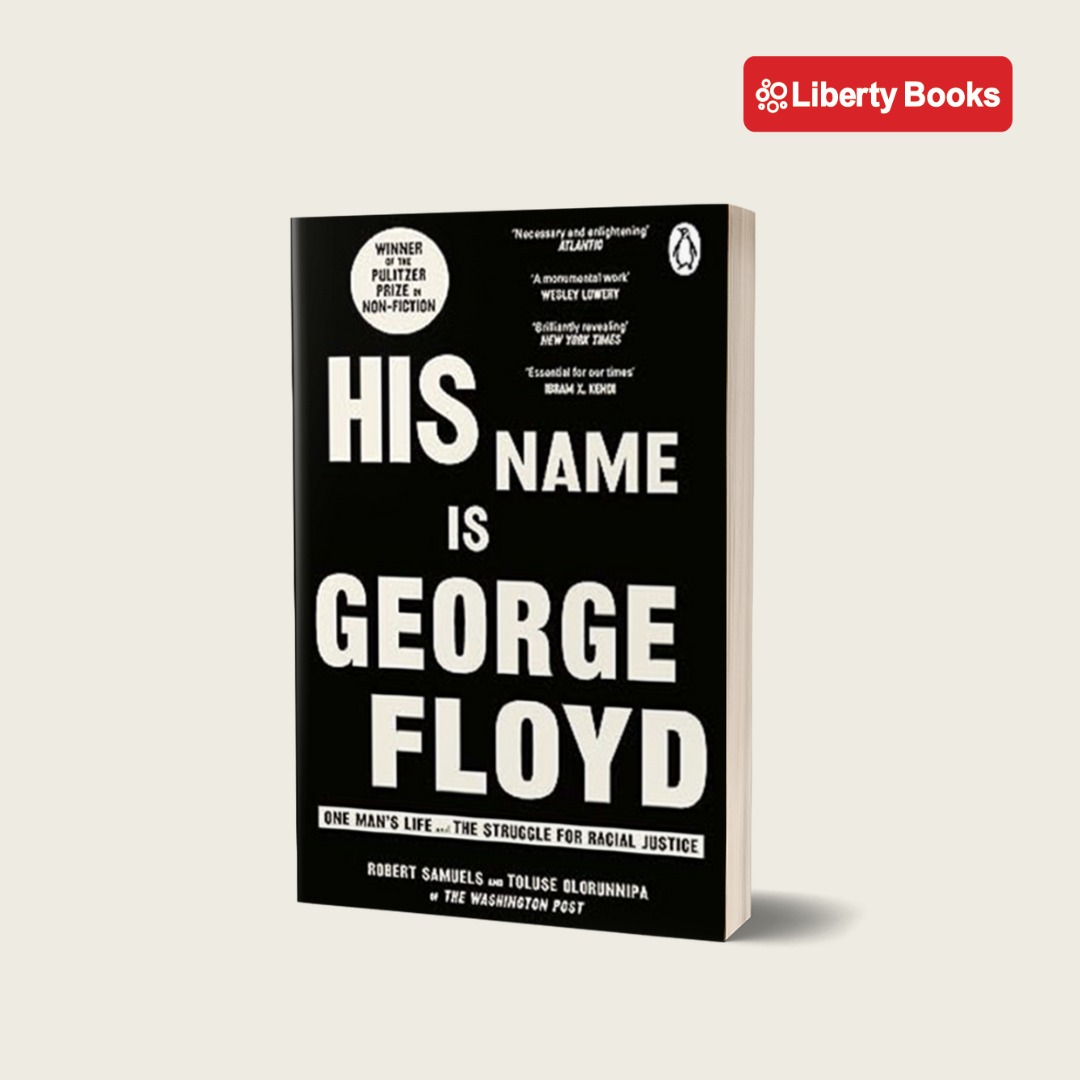Journalists Robert Samuels and Toluse Olorunnipa, authors of the Pulitzer Prize-winning book “His Name Is George Floyd,” are still unclear why they were told they couldn’t read from their book or talk about systemic racism to a room full of high school students in Memphis.
Two days before an event at Whitehaven High School, they said they were “blindsided” by the last-minute restrictions, which they believed event organizers issued in accordance with Tennessee laws restricting certain books in schools. They said they’d also been told the week before the appearance that their book wouldn’t be distributed at the event.
One thing is for certain, the authors said: The students paid the price ultimately.
“I was thinking about the great disservice that they’re giving these students who deserve better,” Samuels said about the days before the event. “I thought about my personal disappointment and feelings of naïveté that despite all the work Tolu and I had done to make sure the book would be written in a way that was accessible to them, a larger system decided that they were going to take it away.”
A spokeswoman for the Memphis-Shelby County Schools denied that it had placed restrictions on what the authors could say, calling the whole thing a “miscommunication.”
Both Whitehaven High School, where the event was held on Oct. 26, and its Memphis-Shelby County Schools district are predominantly Black, according to the National Center for Education Statistics. The room full of Black students sat engaged as they listened to the journalists, but Samuels and Olorunnipa said they felt the high-schoolers were shortchanged. The authors said they weren’t able to speak deeply about the book’s themes, and instead largely shared their own histories with the students.
“This is just another one of those obstacles unfairly being placed in their paths through no fault of their own,” Samuels said.
It is unclear who ultimately determined the restrictions.
The event was organized by Memphis Reads, a community reading program out of Memphis’ Christian Brothers University. The organization picks one book each year that “engages Memphians in issues that are relative to daily societal topics and themes” and holds events relating to the work.
Past selections have included Colson Whitehead’s “The Underground Railroad” in 2018 and “Thick: And Other Essays” by Tressie McMillan Cottom in 2021. “His Name Is George Floyd” is a biographical account of Floyd’s life and explores the ways racial inequality affected him from his youth to his death.
Samuels and Olorunnipa said they worked with Justin Brooks, director of the university’s Center for Community Engagement, to plan the event. The authors said Brooks told them of the restrictions and they did not communicate directly with the school district. Brooks told Chalkbeat that Memphis Reads officials were “under the instruction of MSCS leadership when completing the formatting and regulations concerning the Age-Appropriate Materials Act.”
Cathryn Stout, a spokeswoman for Memphis-Shelby County Schools, told NBC News the situation stemmed from miscommunication. Stout said school officials never placed any restrictions on what Samuels and Olorunnipa could say or read at the event. The only issue was providing the book to students at the event which, due to state and district regulations, would require a lengthy review before the school could distribute the title.
“Memphis-Shelby County Schools did not send any messaging that said the authors could not read an excerpt from the book. Memphis-Shelby County Schools also did not send any messaging that said the authors could not discuss systematic racism or topics related to the death of George Floyd,” Stout said. She added that the district was “saddened and disappointed” when they learned the authors “were given misinformation that was said to have come from us.”
Stout said the school did not have enough time to properly review the book for distribution in accordance with district protocol and Tennessee state law. She added that the district provided alternatives for distributing the books to students, including working with a community group to provide the books outside of school. The authors told NBC News they will make the books available to students through a local nonprofit at a location outside of the campus.
Stout said that, after the event, “Memphis Reads apologized for the miscommunication.” Neither Brooks nor Memphis Reads responded to requests for comment from NBC News.
Tennessee is among several states to place restrictions on school library books and what educators can teach students about race. State lawmakers in 2022 passed the Age-Appropriate Materials Act, which requires public schools to establish procedures to review library books to ensure they contain “materials appropriate for the age and maturity levels of the students who may access the materials, and that is suitable for, and consistent with, the educational mission of the school.” The law also requires public schools to make a list of their library books available to the public, establish a system for the school communities to provide feedback on the books, and remove the books if they are deemed inappropriate.
The situation has been mired in confusion, and Samuels and Olorunnipa themselves said they aren’t sure whom to blame.
“It was really disappointing to hear that our speech was going to be limited,” Olorunnipa said. “Not only for us, but for the students whose access to knowledge is going to shape their journey in this world and in this country.”

